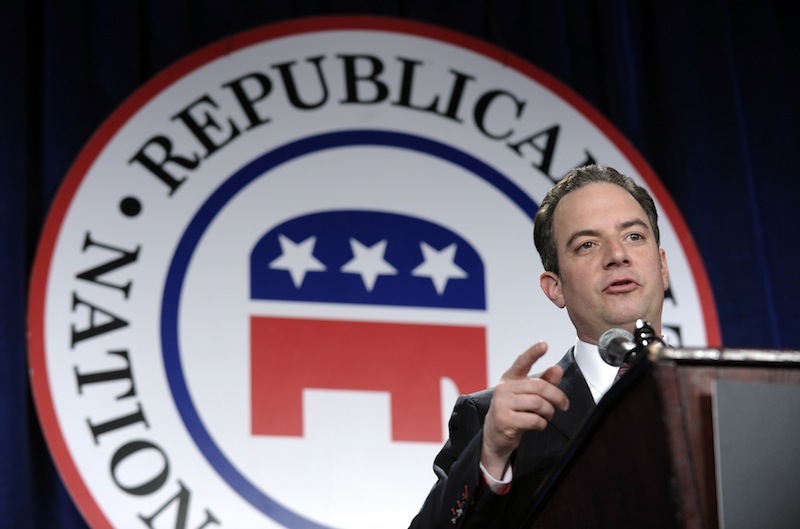WASHINGTON — Republican leaders overwhelmingly voted Friday to shorten their presidential selection process in an attempt to minimize damage from GOP candidates attacking each other.
“This is a historic day for our party,” RNC chairman Reince Preibus declared.
He said the changes would not allow Republicans to “slice and dice” each other for six months or participate in “a circus of debates.” Republican candidates participated in 27 debates for the 2012 nomination.
Iowa and New Hampshire will retain their coveted spots atop the presidential primary calendar, and South Carolina and Nevada also secured top spots, as they have in the past, as part of a larger plan that could significantly reshape the 2016 presidential election.
The vote came as the Republican National Committee works to create an easier path to the White House for its next nominee roughly a year before campaigning begins in earnest for the next presidential contest. While President Barack Obama’s second term began just one year ago, prospective Republican candidates already have begun visiting states like Iowa and New Hampshire that hold outsize influence because of their early positions on the primary calendar.
New Hampshire, Iowa, South Carolina and Nevada are scheduled to host the first four contests in February 2016 under the new schedule, while the remainder of the nation’s 46 states and territories would vote between early March and mid-May. The party’s national convention is expected in late June or early July, roughly two months sooner than has become the norm.
Officials from early voting states praised the plan, which establishes strict penalties for states that jump out of order, as Florida did in 2012.
Republican national committeeman Steve Duprey of New Hampshire described the changes as an “effective death penalty for any state that tries to jump the calendar.”
“This will be the best protection that New Hampshire has ever had for its primary,” he said.
The shift comes during the winter meeting of the Republican National Committee, a collection of party leaders and activists from every state that controls the GOP’s national infrastructure. The group expects to finalize additional changes, including setting a new date for its 2016 national convention, later in the year. Among other changes, the RNC intends to dramatically reduce the number of presidential debates and have more control over the moderators.
“Big reforms are coming to our presidential nominating process — reforms that put Republican voters, not the liberal media, in the driver’s seat,” Priebus said.
GOP leaders also complained that the party’s 2012 nominee, Mitt Romney, was forced to suffer through a lengthy and expensive primary process that ultimately hurt his ability to compete against Obama. An earlier convention date, for example, would allow the party’s next nominee to access millions of dollars of general election cash months earlier.
Not everyone was pleased with the changes, which were approved by a 153-to-9 vote.
“I think we’re going too far in shortening this process,” Republican committeeman Morton Blackwell of Virginia said. “We need an adequate amount of time in order for presidential candidates to be tested.”
Committee members gathered in Washington this week also began considering the location of its 2016 national convention.
Representatives from four contending cities — Las Vegas, Denver, Kansas City, Mo., and Columbus, Ohio — offered gifts and parties to help secure an early advantage. Las Vegas’ bid, fueled in part by Republican megadonor Sheldon Adelson, gave GOP officials complimentary wireless Internet access and goodie bags with fleece jackets and leather binders.
The RNC is expected to select its next convention location no earlier than this summer.
Send questions/comments to the editors.



Comments are no longer available on this story